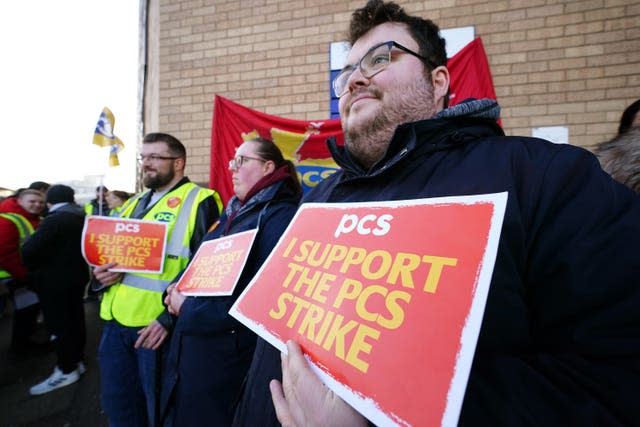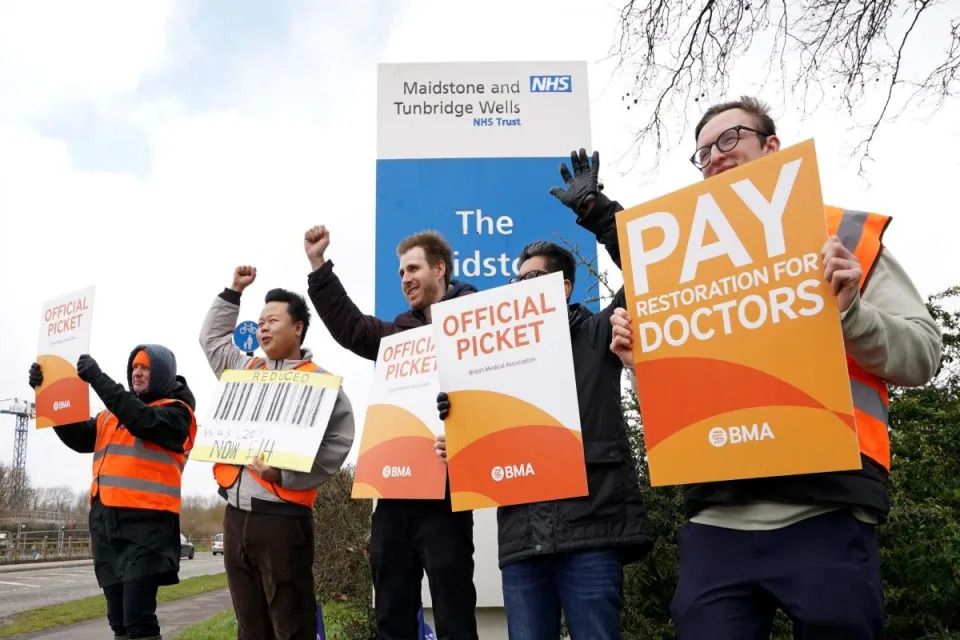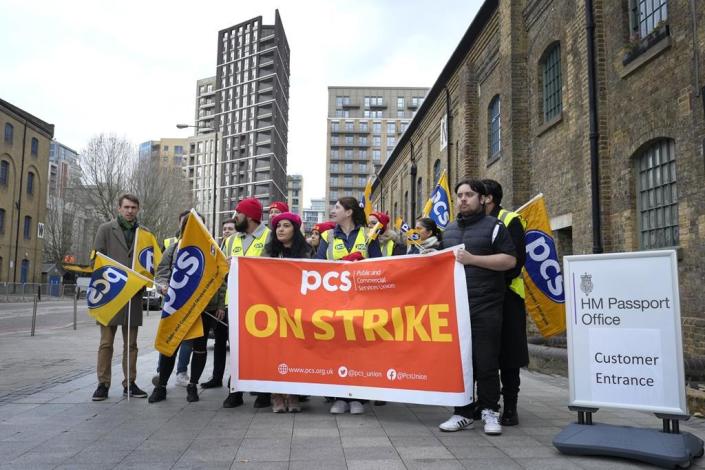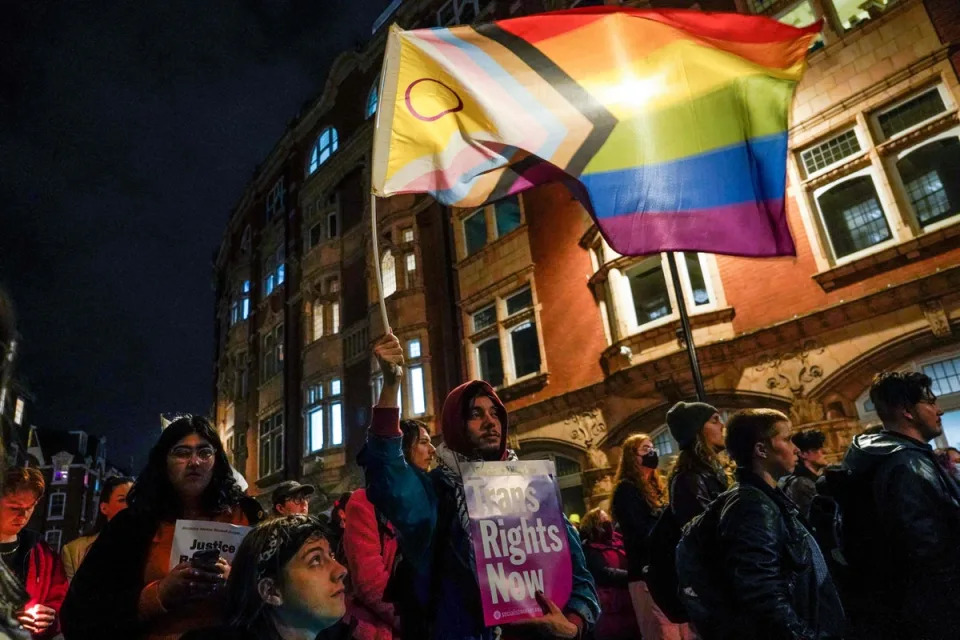Peter Hannam Economics correspondent
Sun, 2 April 2023

Photograph: Flashpop/Getty Images
The Albanese government could save the budget billions of dollars by winding back generous superannuation benefits that effectively produce “taxpayer-funded inheritance schemes” for the wealthy, a new Grattan Institute report argues.
The “super savings” report says such tax breaks now cost $45bn a year, or 2% of GDP, and will soon exceed the age pension costs. Two-thirds of the breaks go to the top 20% of income earners who typically are already saving enough for retirement.
“Much of the boost to super balances from tax breaks is never spent,” it said. “By 2060, one-third of all withdrawals from super will be via bequests – up from one-fifth today.”
Brendan Coates, one of the report’s authors, said the projected huge federal budget deficits and mounting demands for more spending on the NDIS, defence and other programs gave urgency to reining-in “unfair and unsustainable” super benefits.
“Our super tax breaks have been too generous for a long time,” Coates said.
The biggest changes were introduced by then treasurer Peter Costello in 2006 and “both sides of politics have been gradually chipping away at the tax breaks ever since,” he said.
Related: Coalition’s super changes will affect three times as many people as Labor’s plan, modelling shows
The 10 recommended changes include raising the so-called division 293 tax on super contributions from high earners from 30% to 35%, and cutting the annual income threshold at which this tax applies from $250,000 to $220,000. The budget would reap $1.1bn a year from the change.
To make the scheme more equitable, the low-income superannuation tax offset should be extended to those earning as much as $45,000 a year, up from $37,000 now. That change could cost $530m annually.
The Albanese government drew the ire of some investor groups and media pundits in February when it announced earnings on super balances above $3m would be taxed at a rate of 30%, up from the current 15%, starting in July 2025. Shadow treasurer, Angus Taylor, criticised the move as an “attack on middle Australia”, while the opposition leader, Peter Dutton, has promised to repeal it if the Coalition wins office.
The public’s response to that move – which is expected to affect about 80,000 people initially – was “actually heartening” and should encourage the government to go further, Coates said. “Polling of that change shows it has been wildly popular despite intense media commentary.”
Related: Young Australians are struggling, but improving their lives doesn’t come at the expense of older generations | Alison Pennington
The treasurer, Jim Chalmers, is busy preparing his second budget –– to be released on 9 May. At the end of last year, the underlying cash deficit for the 2022-23 year was expected to be almost $37bn with the annual shortfall rising to about $50bn in 2024-25 and 2025-26.
Treasury officials are understood to have listened respectfully to the proposals but for now are sticking to the tax changes already planned for the $3m-plus super accounts.
Other changes proposed by the Grattan report include reducing the pre-tax contributions cap to $20,000 a year, from $27,500.
The move would save the budget $1.6bn a year by trimming voluntary contributions typically made by older people with already-high balances. Men also typically benefit much more than women.
Provisions that allow co-contributions and carry-forward provisions, intended to encourage catch-up payments, instead “facilitate tax minimisation and should be abolished” it said. Savings to the budget would be about $1.1bn a year.
The report said all super earnings in retirement should be taxed at 15%, as they are before people retire. Such a change would save the budget $5.3bn annually.
Coates said warnings that changing super conditions would alter people’s retirement plans were exaggerated.
“We change tax rates on personal income all the time,” he said, adding that the proposed changes would bring superannuation back in line with its original purpose. “This isn’t about blowing up the system.”
Whereas the right of inheritance is one of the principal causes of the economic, social, and political inequality which governs,the world; Whereas, so long as there is no equality, there can be neither freedom nor justice but only oppression and exploitation—slavery and the labor of the people; Therefore, the Congress recognizes the need to abolish fully and completely the right of inheritance.
This question, which will be discussed at the Basle Congress, is divided into two parts, the first being the principle, and the second being the practical application of the principle.
The question of the principle itself should be considered from two standpoints: expedience and justice.
From the standpoint of the emancipation of labor, is it expedient, is it necessary, to abolish the right of inheritance? In our opinion, to ask this question is to answer it. What can the emancipation of labor mean, if not its' deliverance from the yoke of property and capital? And how can property and capital be prevented from dominating labor and exploiting it so long as they are divorced from labor, monopolized by the members of a class who need not work in order to live because of their exclusive enjoyment of the fruits of that monopoly, who will continue to exist and to keep labor down by levying on it land's rent and capital's interest, who are made strong by this state of affairs, and who thus secure for themselves all the profits of industrial and commercial enterprises as is the case now everywhere, leaving to the workers, who are themselves crushed by the mutual competition into which they are forced, only what is absolutely necessary to keep them from starving to death?
No political or juridical law, however severe, will be able to prevent this domination and exploitation, no law can prevail against the force of circumstances, no law can prevent a given situation from producing all of its natural results: From this it clearly follows that, so long as property and capital remain on one side and labor remains on the other, the former constituting the bourgeois class and the latter the proletariat, the workers will be the slaves and the members of the bourgeoisie will be the masters.
But what separates property and capital from labor? What distinguishes the classes economically and politically from one another, what destroys equality and perpetuates inequality, the privilege of the few and the slavery of the many? It is the right of inheritance.
Need we demonstrate how the right of inheritance gives rise to every economic, political, and social privilege? Plainly, it alone maintains class differences. Through the right of inheritance, both natural and passing differences among individuals, of fortune or prosperity, differences that should not outlive the individuals themselves, are eternalized, one may say petrified. Becoming traditional differences, they create privileges of birth, they establish classes, they become a permanent source of the exploitation of millions of workers by mere thousands of the well-born.
So long as the right of inheritance is in effect, there can be no economic, social, and political equality in the world; and so long as inequality exists, there will be oppression and exploitation. In principle, then, from the standpoint of the all-round emancipation of labor and laborers, we must desire the abolition of the right of inheritance.
It is understood that we do not intend to abolish physiological heredity, that is, the natural transmission of physical and intellectual abilities, or to be more precise, that of muscular and neural abilities from parents to their children. This transmission is often unfortunate, for it causes the physical and moral maladies of past generations to be passed on to present generations. But the disastrous effects of this transmission may be fought only by applications of science to individual and collective social hygiene, and by a rational and egalitarian organization of society.
What we want to abolish, what we must abolish, is the right of inheritance, which was established by jurisprudence and which constitutes the very basis of the juridical family and the State.
It is also understood that we do not intend to abolish sentimental inheritance. By this we mean the passing on, to children or friends, of objects of slight value which belonged to their friends or deceased parents, and which, because of their long use, have personal meaning. Substantial inheritance is what guarantees to heirs, either in full or in part, the possibility of living without working, by levying upon collective labor either land's rent or capital's interest.
We intend that both capital and land—in a word all the raw materials of labor—should cease being transferable through the right of inheritance, becoming forever the collective property of all productive associations.
Equality, and hence the emancipation of labor and of the workers, can be obtained only at this price.
Few are the workers who do not realize that the abolition of the right of inheritance will in the future be the ultimate condition of equality. But some fear that if it is abolished now, before a new social organization has guaranteed the lot of all children regardless of the conditions under which they are born, then their children will find themselves in financial difficulties after their death.
"What!" they say. “From the sweat of my brow and through great privation, I have amassed two or three or four hundred francs, and my children will be denied them!" Yes, these will be denied them, but in return they will be cared for by society, without prejudice to the natural rights of the mother and father, and they will receive an upbringing and an education which you could not guarantee them even with thirty or forty thousand francs. For it is clear that as soon as the right of inheritance is abolished, society will have to take responsibility for all costs of the physical, moral, and intellectual development of all children of both sexes born in its midst. It will become their supreme guardian.
We shall stop here, because at this point the question joins that of all-round education, on which another committee should report to you.* But there is another point we should clarify.
Many persons hold that if the right of inheritance is abolished, then the greatest stimulus that impels them to work will be destroyed. Those who so believe still consider labor a necessary evil or, to speak theologically, the result of Jehovah's curse, which he angrily hurled at the unhappy human race and in which, by a singular caprice, he included the whole of creation.
Rather than enter into this solemn theological discussion, we shall base ourselves on the simple study of human nature, answering those who disparage labor, by saying that for every person who possesses human capabilities, labor, far from being an evil or a painful necessity, is a need.
To be convinced of this, you may conduct a simple experiment on yourself: force yourself to be absolutely inactive for only a few days, or to do sterile, unproductive, and stupid work, and see whether at the end you do not feel most unhappy and degraded! Man's very nature compels him to work, just as it compels him to eat, drink, think, and speak.
If labor is hated today, this is because it is excessive, brutalizing, and forced, because it is the death of leisure, because it deprives one of the possibility of enjoying life fully, and because nearly everyone is compelled to apply his productive energy to that type of labor which least fits his natural inclinations. Labor is hated, finally, because in this society, which is founded on theology and jurisprudence, the possibility of living without working is considered an honor and a privilege, and the need to work for a living is regarded as a sign of degradation, a punishment and a disgrace.
When the labor of body and mind, manual and intellectual together, is considered the greatest honor, the sign of virility and humanity, then society will be saved. But that day will never arrive so long as inequality reigns, so long as the right of inheritance has not been abolished.
[Examining the principle of the abolition of inheritance from the second standpoint, we ask:] Will this abolition be just? But if it is in everyone's interest, in the interest of humanity, how could it be unjust? We must distinguish historical, political, and juridical justice from rational or simply human justice. The first has ruled the world until now, making it a repository of bloody oppressions and injustices. The second will emancipate us. Therefore let us examine the right of inheritance from the standpoint of human justice.
A man, we are told, has acquired through his labor several tens or hundreds of thousands of francs, a million, and he will not have the right to leave them as an inheritance to his children! Is this not an attack on natural right, is this not unjust plunder?
First, it has been proven a thousand times that an isolated worker cannot produce very much more than what he consumes. We challenge any real worker, any worker who does not enjoy a single privilege, to amass tens or hundreds of thousands of francs, or millions! That would be quite impossible. Therefore, if some individuals in present-day society do acquire such great sums, it is not by their labor that they do so but by their privilege, that is, by a juridically legalized injustice. And since a person inevitably takes from the labor of others whatever he does not gain from his own, we have the right to say that all such profits are thefts of collective labor, committed by a few privileged individuals with the sanction of the State and under its protection.
Let us proceed.
The thief who is protected by law dies. With or without a testament, he leaves his land or his capital to his children or to his parents. This, we are told, is a necessary result of his individual freedom and his right; his desires must be respected. But a dead man is dead for good. Outside of the altogether moral and sentimental existence created either by the pious memories of his children, parents, or friends (if he deserved such memories) or by public recognition (if he rendered some real service to the public), he no longer exists at all: He therefore can have neither freedom nor right nor personal will. Ghosts should not rule and oppress this world, which belongs only to the living.
So that he may continue to will and to act after his death, a juridical fiction or political lie is necessary, and as he is henceforth incapable of acting by himself, some power—the State—must take responsibility for acting in his name and for him. The State must execute the'will of a man who can have no will because he no longer exists.
And what is the influence of the State, if it ts not everyone's influence organized to everyone's disadvantage and to the advantage of the privileged classes. Before all else, it is the production and the collective strength of the workers. So do the masses of workers have to guarantee the principal source of their poverty, the transfer of inheritances, to the privileged classes? Must they forge with their own hands the chains that shackle them?
For the right of inheritance, which is exclusively political and juridical and hence contrary to human right, to collapse by itself, the proletariat need only declare that it no longer wishes to support the State, which sanctions its slavery. The abolition of the right of inheritance is enough to abolish the juridical family and the State.
Moreover, all social progress has proceeded from successive abolitions of rights of inheritance. First, the right of divine inheritance was abolished, the traditional privileges or punishments which were long considered the result of either diving benediction or divine malediction.
Then the right of political inheritance was abolished, resulting in the recognition of the sovereignty of the people and the equality of citizens before the law. At present, in order to emancipate the worker, the human being, and to establish the reign of justice on the ruins of all the political and theological injustices of the present and the past, we must abolish economic inheritance.
The last question to be resolved addresses the practical measures we must take to abolish the right of inheritance. The right of inheritance may be abolished in two ways: either by successive reforms or by social revolution.
It can be abolished by reforms in those fortunate countries, which are very few in number if they exist at all, where the class of property owners and capitalists, the members of the bourgeoisie, inspired by a spirit and a wisdom that they now lack, finally realize the imminence of social revolution and earnestly desire to come to terms with the world of the workers. In this case, but only in this case, the path of peaceful reforms will be possible. By a series of successive, prudently planned modifications, mutually agreed between the workers and the members of the bourgeoisie, the law of inheritance could be abolished completely in twenty or thirty years, replacing the present customs of property, labor, and education with collective labor, collective property and-all-round upbringing and education. It is impossible for us to determine further, the character of these reforms, for they must necessarily be adapted to the particular situation in each country. But in all countries the goal remains the same: the establishment of collective property, collective labor, and individual freedom, through universal equality.
The way of revolution will naturally be shorter and simpler. Revolutions are never made either by individuals or by associations. They are brought on by the force of circumstances. The International by no means has as its goal the making of the revolution, but it ought to take advantage of [the spirit of R]evolution, organizing it as soon as it appears as the result of the increasingly clear injustice and ineptitude of the privileged classes. We must understand ,that on the first day of the revolution the right of the inheritance will simply be abolished, along with the State and juridical law, so,that on the ruins of these injustices the new international world may then appear, the world of labor, science, freedom, and equality, organizing from itself the bottom up, by the free association of all productive associations, across all political and national frontiers.
The Committee proposes the following resolutions:
Whereas the right of inheritance is one of the principal causes of the economic, social, and political inequality which governs,the world; Whereas, so long as there is no equality, there can be neither freedom nor justice but only oppression and exploitation—slavery and the labor of the people; Therefore, the Congress recognizes the need to abolish fully and completely the right of inheritance.
This abolition will be accomplished as. events require, either by reforms or by revolution.
*No such committee was formed; but see "All-Round Education" in this volume:
https://theanarchistlibrary.org/action/text/edit/mikhail-bakunin-on-the-question-of-the-right-of-inheritance/m-b-mikhail-bakunin-on-the-question-of-the-right-o-1.pdf















